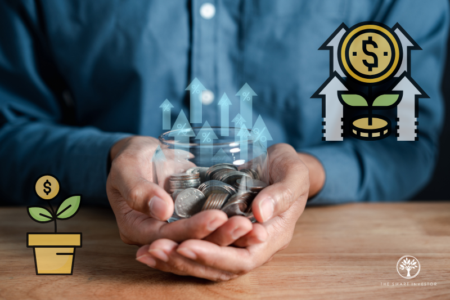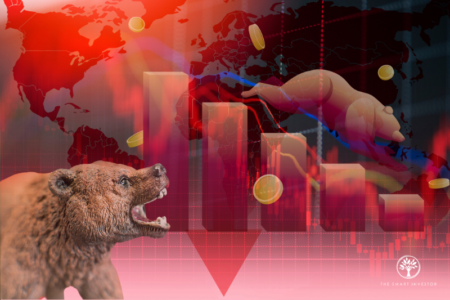Last week, our team at The Smart Investor gathered together, virtually, to have a ‘Zoom lunch’.
At first, the idea of eating in front of a video camera in our own homes may seem awkward.
However, having gone through the experience, I can now say that our Zoom lunch was a great success. We had our team together, complete with social banter, all while enjoying a good meal together.
We were meeting virtually over a meal, but it didn’t feel that way at all.
Like every business out there, we are simply adapting to new practices made necessary by COVID-19.
That applies to the companies that we invest in as well.
Breaking down old assumptions
The COVID-19 pandemic has abruptly and unceremoniously put our most basic assumptions to the test.
For instance, until Singapore announced its circuit breaker (CB) measures, it would be reasonable to assume that bus services run by SBS Transit (SGX: S61) were a daily, essential staple in commuting for anything from work to school.
However, after Singapore’s CB came into effect, public transport ridership plummeted by more than 80%.
What was once a daily staple may no longer be the case.
Although the CB measures are about to be lifted in phases, SBS Transit itself is no longer certain that demand for public transport will go back to any semblance of its past.
In short, the old assumption of regular commuting may no longer be valid.
In an increasingly digital world, more people may shift their work back to their homes. Students may no longer need to be in schools all the time. And as the need for daily commute declines, there will be less demand for the bus operator’s services.
There are no two ways about it.
SBS Transit expects lower demand to be the new reality that it has to face. The company’s immediate challenge will be finding its role as a transport provider in the era of COVID-19.
Like SBS Transit, our eyes should be open to old assumptions that we have been making about the companies within our portfolio.
Even the most basic assumptions may break down, and is something that we need to be aware of.
Until such time a vaccine is found, we have to consider the possibility that we may have to get accustomed to circuit breaker-like measures as part of our everyday lives.
Essential goods and services, redefined
The threat of COVID-19 has forced the hand of governments around the world to define, down to the granular level, what products and services are deemed essential and what are not.
The process has been swift and in some ways, unforgiving for businesses.
For investors, we are getting the clearest definition yet on what essential products and services will remain running and what may be disrupted in the future.
Some needs, which are temporarily deemed non-essential, such as tourism and recreation, have been put aside.
However, it does not mean that these needs have disappeared altogether.
My personal belief is that these needs are still there.
The more pertinent question should be, how can they be met in a different way?
The late Clay Christensen may have a good answer to that conundrum.
The Harvard Business School professor is known for championing the idea that consumers hire products to do jobs for them.
In the same vein, we need to redefine the “jobs to be done” in the era of COVID-19.
For instance, there will still be the need to put food on the table for our families.
The location of that table could be in our homes, rather than a crowded restaurant.
From there, the challenge is for the restaurant owner to reposition themselves for home dining rather than communal dining.
Similarly, there is still demand for exercise and recreation.
These are jobs that are still in demand. Where we sweat it out could be at home, following yoga instructions via Zoom, for instance.
For recreation, musicians may no longer perform in live concerts where massive crowds gather.
Virtual concerts could be the solution.
Concerts organised by rapper Travis Scott within the popular online game, Fortnite, attracted almost 28 million viewers, more than any physical concert can hope to muster.
That does not mean that everything will be done online. Smaller group activities such as meeting fans could be done in person.
Meanwhile, online doctor consultation could be the norm for anyone needing medical attention.
Physical doctor visits could be reserved for more serious cases.
Augmented reality could help consumers test cosmetic products without being in the store. The chosen product can then be delivered to the customer’s home.
In short, new solutions have to be found for jobs that are still waiting to be met.
Necessity is the mother of all invention
COVID-19 has been a punch in the gut for many businesses.
As it stands, no one knows when life can return to what we were used to, or if it does at all.
Until then, the challenge for businesses is to figure out their customers’ needs down to its most basic element, and to figure out how these can be met.
All is not lost.
When backed into a corner, I believe that the best companies will figure out a new way to serve their customers.
After all, the best way to survive a crisis, in my view, is to innovate.
That is also the challenge for investors to take in.
Where do we put our money in companies which are able to survive a prolonged era of COVID-19?
Some investing basics remain as relevant as ever.
We want companies that have the financial means to weather any unexpected interruptions in the future.
And there will be more disruptions in the future.
We should seek management teams that see things for what they are and adapt accordingly.
And there will be the need to adapt again.
Ultimately, we want to find companies that can carve out a competitive edge in the era of COVID-19.
We need all that, because COVID-19 may be the biggest challenge and opportunity for all the companies out there.
As investors, we want to invest in the best of them.
And that’s a great topic for our next Zoom lunch.
With share prices battered to multi-year lows, many attractive investment opportunities have emerged. In a special FREE report, we show you 3 stocks that we think will be suitable for our portfolio. Simply click here to scoop up your FREE copy… before the next stock market rally.
Click here to like and follow us on Facebook and here for our Telegram group.
Note: An earlier version of this article appeared in The Business Times.
Disclaimer: Chin Hui Leong does not own shares in any of the companies mentioned.




